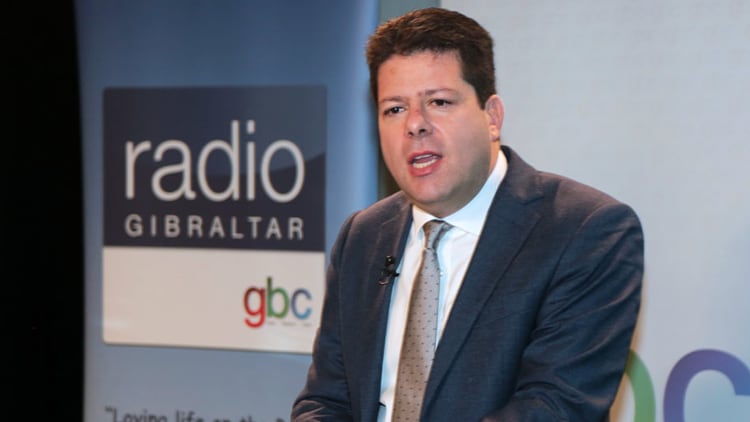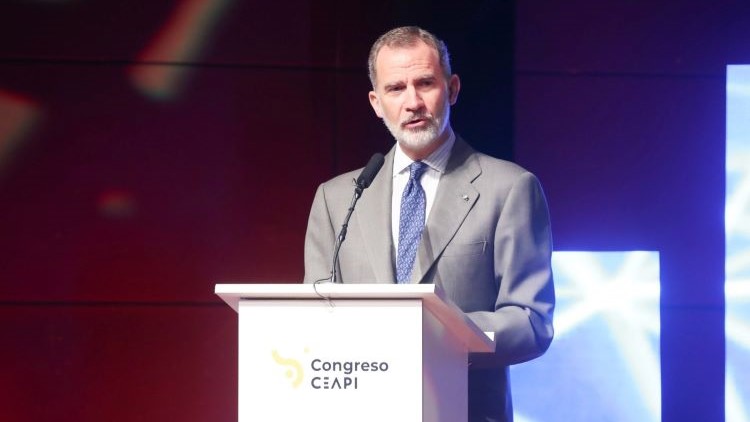Luis Ayllón
Pessimism has taken hold of the Gibraltarian authorities following Pedro Sánchez’s announcement to call an early general election for 23 July. If the negotiations between the European Commission and the United Kingdom to reach an agreement on the status of the Rock after Brexit were practically at a standstill, they are now considered to have been blocked until Spain, which must approve the treaty, has a new government.
The colony’ chief minister, Fabian Picardo, acknowledged on Tuesday, in statements to Radio Gibraltar, that it is “very unlikely” that such an agreement can be reached before 23 July, and that the situation created is one of uncertainty.
Picardo is aware that, if Spain does not give the green light to what Brussels and London agree, there will be no signature, not only because the Spanish government will be very focused on the election campaign, but also because it is unthinkable that it would adopt, under these circumstances, a decision which, as it is part of an international treaty, will commit the country for several years.
For this reason, the Gibraltarian authorities already take it for granted that negotiations can only continue once Spain has a new government, that is, in the best-case scenario, well after the summer.
Although it does not say so publicly, Picardo’s government knows that it has lost an opportunity to reach an agreement favourable to its interests, after having rejected the offers that the Spanish government has put on the table. Sources familiar with the negotiations believe that both Gibraltar and the UK have been too tense, in the hope of obtaining more concessions from Spain, without giving Madrid any answers, despite the fact that the Foreign Affairs Minister, José Manuel Albares, has insisted time and again that the ball was in the British court.
Negotiations have not progressed, among other reasons because London has maintained its reservations on issues such as the presence of members of the Spanish security forces at passenger controls at the port and airport, or the refusal of any Spanish control over the movements of personnel at the Royal Navy base on the Rock, which the Spanish authorities consider essential to be able to exercise its powers as a Schengen area border. In addition, issues relating to tax harmonisation and the environment, among others, remain unresolved.
In his radio statements, Picardo insisted that he would have accepted a treaty if there had been an option “that was safe for Gibraltar”, something he considers has not existed, even after Sánchez and the British Prime Minister, Rishi Sunak, spoke on the phone a month ago and expressed their willingness to conclude an agreement on the future status of the colony “as soon as possible”.
Despite his appeals for calm, Picardo is aware that the outlook for a possible agreement will worsen if Sánchez does not remain in power. He knows that a PP government will be much tougher when it comes to negotiating, especially if the elections result in Alberto Núñez Feijóo having to rely on the votes of Vox to govern, a party that, on several occasions, has been very combative in its claims to recover Spanish sovereignty over Gibraltar.
In any case, the Gibraltarian media believe that the resumption of negotiations will not take place until at least the new year, because in addition to the formation of a government in Spain, there are likely to be elections in Gibraltar in October.
Meanwhile, the question now facing the Gibraltarians is whether the European Union will continue to allow indefinitely the measure adopted by Spain, as a sign of goodwill, of not preventing British passport holders who show a red card, issued by the Gibraltar government, identifying them as Gibraltarians, from crossing the fence into Spanish territory.
This issue is the one that most concerns Gibraltarian citizens now, because it allows them to continue entering and leaving the colony as before Brexit, but the Spanish Government took the measure to be in force, in principle for a season, until the agreement between the United Kingdom and the European Commission was reached, something that has been delayed more than expected.







